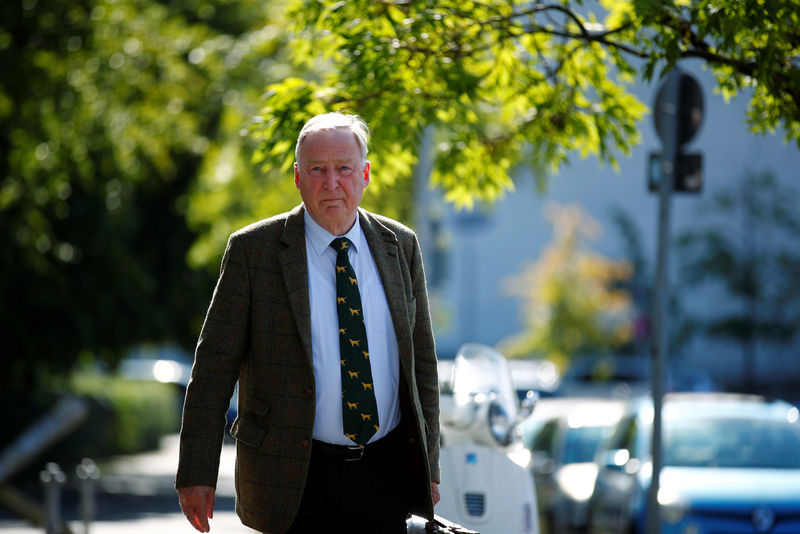By Susanne Neumayer-Remter and Michelle Martin
POTSDAM, Germany (Reuters) - The far-right Alternative for Germany (AfD), set to enter parliament for the first time at weekend elections, said on Friday it would revive debate there after four years of "grand coalition" rule by the two major parties.
Support for the AfD, which has won voters with its anti-immigrant rhetoric, jumped 2 points to 11 percent in a Forsa poll, putting it on course to become the first far-right party in more than half a century to clear the five percent hurdle and enter parliament.
"It must get into the Bundestag lower house so that debates happen again in this parliament because on fundamental questions on the nation everyone is always in agreement (and) this parliament ... has become totally boring," the AfD's top candidate Alexander Gauland told Reuters.
In an interview in Brandenburg's regional parliament - one of the 13 state assemblies where the AfD has won seats - Gauland accused Chancellor Angela Merkel, who is set to win a fourth term, and her Social Democrat (SPD) challenger Martin Schulz of differing little in their policies.
"The Bundestag used to be the sounding board of our worries and problems but it isn't at all at the moment and that's why we want to get in there with completely different political suggestions," he added.
He said parliament, dominated for four years by a coalition of the SPD and Merkel's conservatives, had not had any interesting debates on key issues such as sanctions against Russia, the NSA spying scandal or on the refugee issue.
WEIMAR?
The mainstream parties have ruled out working with the AfD, which may emerge as the third largest party; but Gauland said it would ultimately work toward being able to govern in the medium or long-term.
Electoral arithmetic might yet push Merkel into another grand coalition with the SPD, or she may enter a three-way alliance with the pro-business Free Democrats (FDP) and environmental Greens.
The Forsa poll showed support for Merkel's conservatives holding steady on 36 percent, while the SPD ceded 1 percentage point to 22 percent.
Despite the big gap, SPD leader Martin Schulz told Bild newspaper he had not given up hope of victory and three days ahead of the election 37 percent of voters were still undecided.
Attacking Merkel's campaign as "wooly", Schulz said: "Angela Merkel is not good for the country and must be replaced."
He also took aim at AfD, saying it "has a scapegoat for everything but never a solution".
He described Gauland as "shameless". Gauland provoked outrage by saying at a recent rally that Germans should no longer be reproached with the Nazi past and should take pride in their World War Two soldiers.

"The language that he speaks is the language of the Harzburger Front," Schulz said, referring to a radical right-wing alliance in Weimar Germany. "The gravediggers of the Weimar democracy, they spoke like Mr Gauland."